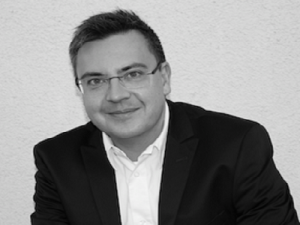Bayer’s defeat in dispute with IFA over Xarelto listing in Munich
Bayer is fighting tooth and nail for its blockbuster Xarelto. However, the pharmaceutical manufacturer has now failed in its attempt to hold the information service for medicines IFA liable for infringing a dosage patent.
10 December 2024 by Konstanze Richter
After Munich Regional Court issued a preliminary injunction in the spring, the Higher Regional Court saw no basis for this at the hearing last Thursday. As a result, Bayer withdrew its application for an injunction (6 U 1431/24).
It therefore remains unclear to what extent the Informationsstelle für Arzneispezifitäten (IFA) must examine a drug before listing it — an issue that has repeatedly come to the fore in other patent disputes concerning drugs.
IFA in the crossfire
IFA is the joint clearing house for the pharmaceutical industry, for wholesalers and pharmacists in Germany. The so-called Lauer Taxe, which provides pharmacies with information on the availability of approved medicines, derives from its database. Without a listing in the Lauer Taxe, medicines cannot be distributed in Germany. As a result, the IFA has a dominant market position and has an obligation under antitrust law to include generics in its database — an obligation that regularly conflicts with patent claims by patent holders.
Bayer is the owner of patent EP 1 261 606, which protects the active ingredient rivaroxaban. This forms the basis of the thrombosis medication Xarelto — a blockbuster that brought Bayer over €4 billion worldwide in 2023 alone, according to Statista. The patent protection expired in April 2024. However, the dosage patent EP 1 845 961 for the treatment of thrombosis with the active ingredient rivaroxaban is still valid until January 2026. Bayer intends to use this property right to keep rivaroxaban generic products off the market and is conducting injunction proceedings against various generic drug manufacturers.
Among other things, the dispute revolves around which dosage form the patent claim protects — a hard capsule or tablet. At the same time, Bayer is also taking action against the IFA, focusing on the question of how far the IFA’s testing obligations go before listing a generic product.
Regional court sees obvious infringement
Bayer considers the possible market entry of generic rivaroxaban to be an equivalent patent infringement, as it believes that Xarelto is still protected by the dosage patent. The IFA had already informed Bayer in February that it would not list rivaroxaban generics in tablet form before 1 February 2026, the expiration date of the dosage patent EP 961. It would list the capsule form, on the other hand, from 15 April 2024 at the earliest, after the expiry of EP 606 and the supplementary protection certificate (SPC) based on it. Bayer is demanding that the IFA also not list the generics for the capsule form in its database before February 2026.
In March of this year, Munich Regional Court ruled that the listing in capsule form was an obvious patent infringement, as Bayer had pointed out to the IFA that the market entry of the generics constituted an equivalent patent infringement. Munich Regional Court therefore issued an preliminary injunction ordering IFA to notify Bayer of applications from generics manufacturers to list generic products with the active ingredient rivaroxaban in the form of hard capsules (case no. 21 O 2080/24) and to refrain from listing these. According to the ruling, the IFA can be expected to examine a possible patent infringement, possibly by consulting a patent attorney.
However, the ruling did not affect the tablet form also challenged by Bayer. The IFA made it clear at the hearing that it does not list the latter.
Both parties appealed against the judgment of the Munich Regional Court. Bayer demanded that the the preliminary injunction also cover the tablet form, while the IFA was defending itself against the allegation of infringement and the claim for information. It believes that the first-instance judgment interprets its inspection obligations too broadly.
Infringement not the issue
The Higher Regional Court has now come to a different conclusion. In his introduction to the case, presiding judge Lars Meinhardt emphasised that the question of infringement was not the focus of the hearing. Parties had discussed this at length in the first instance.

Lars Meinhardt
Unlike the Regional Court, the judges of the Higher Regional Court saw neither an obvious risk of infringement due to the listing in capsule form, nor a risk of first infringement. After all, according to Meinhardt, there was no indication that a listing of the generics was planned. On the contrary, at the time it heard about the legal disputes, the IFA had already stated that it would not list the Xarelto generic products before the expiry of patent protection. The IFA was not guilty of any breach of duty. Accordingly, Bayer is not entitled to a preliminary injunction.
As far as the potential equivalent patent infringement through the listing of the capsule form is concerned, this must be examined in detail. However, this would require a court judgment. This was not available, so it was not possible to speak of an obvious patent infringement by the IFA.
If there is no risk of first use for the capsule, there is certainly no risk of first use for the tablet form. Since no obvious patent infringement was apparent here either, Bayer’s claim for a preliminary injunction was unfounded.
Bayer withdraws
At the end of his summary of the case, Meinhardt made it clear that — subject to further arguments by the parties — the IFA’s appeal against the first-instance judgment would very likely be successful. After a short break, Bayer announced that it was withdrawing its application for a preliminary injunction.
As a result, there is once again no final judgment on the IFA’s specific testing obligations. Pharmaceutical manufacturers repeatedly take action against the IFA in patent disputes against generics manufacturers in order to prevent the listing of generic products. This was the case in the dispute between Bristol Myers Squibb over the cancer drug Revlimid with the active ingredient lenalidomite and Eli Lilly’s Alimta with the active ingredient pemetrexed.
In the parallel proceedings against the generics manufacturers, Munich Regional Court had already issued several preliminary injunctions against Accord, betapharm, 089 Pharm and Zentiva (case IDs: 21 O 3790/24; 21 O 4172/24; 21 O 4272/24 and 21 O 3127/24). These will continue in the second instance in spring 2025.
Large contingent in Munich
Both main parties to the dispute and numerous co-litigants had sent a large contingent of lawyers to Munich. In room 411 of the Munich Higher Regional Court, 25 lawyers, patent attorneys and company representatives had gathered. Most have been advising their clients for years and are also active in the parallel injunction proceedings concerning the infringement issue.
- Stephan Neuhaus
- Natalie Kirchhofer
- Arwed Burrichter
Plaintiff Bayer retained a team from A&O Shearman, led by Stephan Neuhaus. The Düsseldorf partner, who moved from Hogan Lovells in 2021, has extensive experience in pharmaceutical patent disputes. He also played a role in the extensive proceedings surrounding Eli Lilly’s pemetrexed, which also included an attack on the IFA. For the technical issues, he cooperated with the pharmaceutical experts Nathalie Kirchhofer and Arwed Burrichter from the patent attorney firm Cohausz & Florack.
- Michael Weidner
- Konstantin Schallmoser
The Hamburg-based pharmaceutical law boutique Kozianka & Weidner has represented IFA for several years. The team led by medical lawyer Michael Weidner was also active for IFA in a similar dispute against Bristol Myers Squibb regarding the listing of generics for the cancer drug Revlimid with the active ingredient lenalidomide. In earlier disputes, the information service also worked with other representatives. In the dispute over Eli Lilly’s pemetrexed, for example, it retained the Frankfurt boutique Sander & Krüger, but hired the Düsseldorf specialist law firm Novacos for the Nexavar litigation.
Numerous co-litigants
Accord, betapharm and 089 Pharm retained various teams from the same law firm both as co-litigants and in the parallel injunction proceedings against the generics manufacturers. While Hamburg-based Preu Bohlig partner Daniel Hoppe still represented Accord in the first instance, he acted for betapharm before the Higher Regional Court. Previously Carl-Alexander Dinges represented the company.
- Jan Phillip Rektorschek
- Lisa Rieth
- Peter von Czettritz
089 Pharm relied on Konstantin Schallmoser from the Preu Bohlig office in Paris. In January 2025, the three partners will split off with several Preu Bohlig partners from the Hamburg, Paris and Munich offices as a new law firm under the name Bonabry. Patent attorney Alexander Wittkopp from Hamm & Wittkopp assisted Schallmoser with technical matters.
Preu Bohlig has a high profile in the market for its patent practice, but has also been promoting its “IPplus” concept for years. This includes a growing practice for pharmaceutical regulation, which is led by medical and patent lawyer Peter von Czettritz. In the current case, he represented Hexal, which had relied on Anja Lunze from Taylor Wessing in the first instance. Von Czettritz worked with patent attorney Michael Best from Kraus & Lederer. This Munich-based patent attorney outfit came from the merger of Lederer & Keller and Kraus & Weisert at the beginning of 2024.
Zentiva relied on its core law firm Arnold Ruess, whose counsel Lisa Rieth represented the generics manufacturer at the hearing in Munich. Patent attorney Robin Ellis from the Munich office of the British law firm Reddie & Grose assisted with technical questions. Aliud and Stada retained a team led by Jan Rektorschek from Taylor Wessing.







